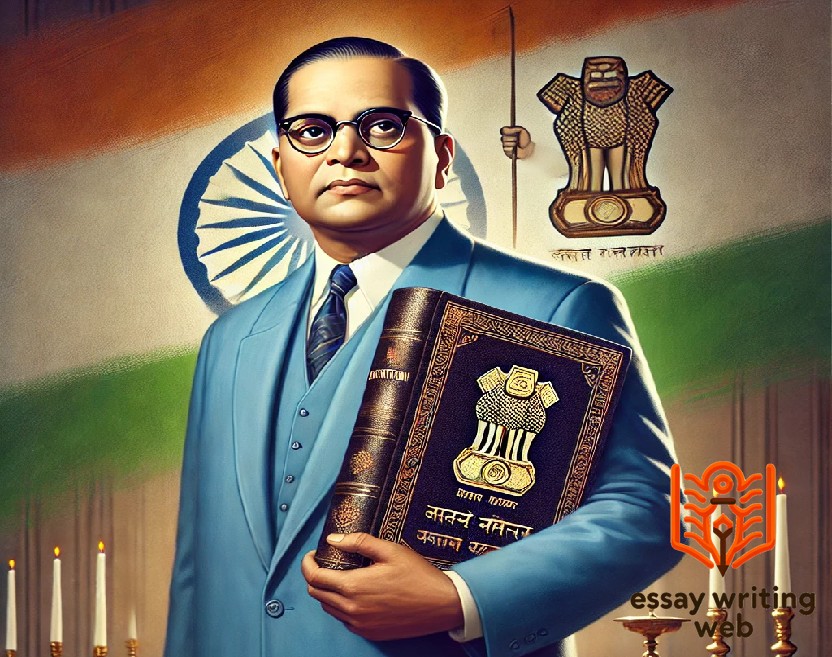 Essay Writing Web
Essay Writing Web
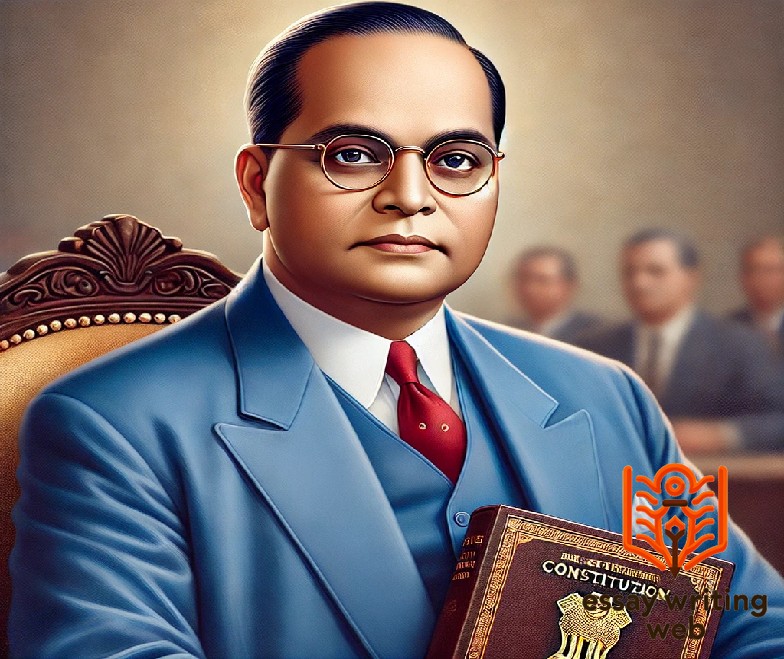
 31-08-2024
31-08-2024
 www.essaywritingweb.com
www.essaywritingweb.com
Dr. Bhimrao Ramji Ambedkar, popularly known as Dr. Babasaheb Ambedkar, stands as one of the most influential figures in Indian history. His life's work as a social reformer, jurist, economist, and politician laid the foundation for a just society and more equitable in India. Born into a socially marginalized Dalit family, Ambedkar's journey was marked by relentless struggle against the deep-rooted caste system that pervaded Indian society. Despite the systemic discrimination he faced, his indomitable spirit led him to achieve remarkable academic success and emerge as a formidable leader advocating for the rights of the oppressed.
He is best known as the principal architect of the Indian Constitution, a document that enshrines the principles of equality, liberty, and fraternity. His vision extended beyond mere legal frameworks; he sought to transform the social fabric of India by promoting education, economic empowerment, and social justice for all, especially the underprivileged. Ambedkar's legacy is not only a testament to his intellectual prowess but also a reflection of his unwavering commitment to the upliftment of the marginalized and his dream of an inclusive nation where every individual enjoys respect and dignity.
In this essay, we will explore the life, work, and enduring impact of Dr. Babasaheb Ambedkar, a leader whose ideas and efforts continue to resonate in contemporary India, inspiring generations to strive for a more just and egalitarian society.
Dr. Bhimrao Ramji Ambedkar, affectionately known as Dr. Babasaheb Ambedkar, was born on April 14, 1891, in the small town of Mhow, located in the Central Provinces of British India, now in Madhya Pradesh. His birth into the Mahar caste, which was considered one of the "untouchable" communities in the rigid caste hierarchy of India, profoundly shaped his life and his relentless pursuit of social justice.
Ambedkar was the fourteenth child of Ramji Maloji Sakpal and Bhimabai Murbadkar Sakpal. His father, Ramji Sakpal, was a Subedar in the British Indian Army, a position that afforded the family some level of respect and stability despite their low caste status. Ramji Sakpal was a deeply religious and disciplined man, who was greatly influenced by the teachings of Kabir, a 15th-century Indian mystic poet who preached equality and criticized the caste system. This spiritual and egalitarian influence played a significant role in shaping Ambedkar's values and his later endeavors to fight against social discrimination.
The family’s roots were in the village of Ambavade, in the Ratnagiri district of present-day Maharashtra. Although they had a military background, the stigma associated with their caste subjected them to severe social and economic hardships. Ambedkar's mother, Bhimabai, was a devoted and caring woman, but she passed away when Ambedkar was just six years old, leaving a deep void in his young life. Despite the hardships, his father ensured that his children received an education, recognizing its power as a tool for liberation from the shackles of caste-based oppression.
Growing up in such an environment, Ambedkar was acutely aware of the systemic inequalities and prejudices that permeated Indian society. The discrimination he faced as a child, even in accessing basic education, left a lasting impression on him. He was often made to sit outside the classroom or on a sack away from the other students, who were from higher castes. These early experiences of marginalization fueled his resolve to challenge and dismantle the caste system that had oppressed millions of people for centuries.
The strong moral and ethical foundation laid by his father, combined with the harsh realities of his early life, played a crucial role in shaping Ambedkar’s worldview. He grew up with a deep sense of empathy for the downtrodden and a burning desire to fight against the injustices of the caste system. This determination would later manifest in his tireless efforts to secure social, economic, and political rights for the marginalized communities of India.
Dr. Babasaheb Ambedkar's birth and family background were not merely the beginning of his life story; they were the crucible in which his character and ideals were forged. The challenges and struggles he faced as a child were instrumental in driving his lifelong mission to create a society where equality and justice prevailed, laying the groundwork for his eventual role as one of India's greatest social reformers.

Dr. Bhimrao Ramji Ambedkar, known as Dr. Babasaheb Ambedkar, is celebrated as a principal architect of the Indian Constitution and pioneering social reformer. However, his journey to becoming one of India’s most influential leaders was fraught with challenges, particularly during his early years and education. Born into a Dalit family, which was subjected to severe social ostracism and discrimination, Ambedkar faced obstacles that would have deterred many. Yet, his determination and commitment to education became the driving forces that helped him overcome these barriers and eventually transform Indian society.
Ambedkar’s early education was marked by significant hardships. As a child in a society deeply entrenched in the caste system, he encountered prejudice from a young age. Despite his father’s position as a Subedar in the British Indian Army, Ambedkar was not spared the indignities associated with his caste. He and other Dalit children were segregated from their classmates, often made to sit outside the classroom or on the floor, away from the upper-caste students. They were not allowed to touch the school’s water supply, as their touch was considered polluting. This systemic discrimination, rather than deterring Ambedkar, fueled his resolve to pursue education as a means of empowerment and liberation.
Despite these challenges, Ambedkar excelled academically. His father, recognizing the importance of education, encouraged him to continue his studies. Ambedkar's brilliance was evident early on, and he became the first person from his community to complete high school, a remarkable achievement at the time. His academic success earned him a scholarship from the Maharaja of Baroda, Sayajirao Gaekwad III, which allowed him to pursue higher education in Bombay (now Mumbai).
Ambedkar’s thirst for knowledge led him to the United States, where he enrolled at Columbia University in 1913. There, he pursued a master's degree in Economics, completing it in 1915. His time at Columbia was transformative. For the first time, Ambedkar experienced an environment relatively free from the caste-based discrimination that had plagued his life in India. This period of intellectual freedom allowed him to explore ideas of democracy, social justice, and equality more deeply. He later pursued further studies in economics and law at the London School of Economics and Gray's Inn, where he was called to the Bar in 1923.
However, Ambedkar’s journey was not without its struggles. After completing his studies abroad, he returned to India with high hopes of serving his country. Yet, the harsh realities of caste discrimination awaited him. Despite his impressive qualifications, Ambedkar faced significant difficulties in finding employment. The stigma of his caste overshadowed his academic achievements, forcing him to accept positions far below his capabilities. He briefly worked as the Military Secretary to the Maharaja of Baroda, but the caste-based discrimination he encountered in Baroda made the position untenable.
These early struggles did not deter Ambedkar; instead, they strengthened his resolve to fight against the social injustices that had been ingrained in Indian society for centuries. He realized that education alone was not enough; it had to be coupled with social and political action to bring about meaningful change. Ambedkar’s experiences as a student and a professional in a deeply divided society shaped his views on social justice and laid the groundwork for his future activism.
Dr. Babasaheb Ambedkar’s early struggles and pursuit of education are a testament to his resilience and determination. His academic achievements, despite the overwhelming odds, underscore his belief in education as a tool for social change. These formative experiences not only molded Ambedkar’s character but also ignited in him a lifelong commitment to fighting for the rights of the oppressed and advocating for a just and equitable society. His journey from a marginalized child to a leader of national and international repute is a powerful reminder of the transformative power of education and the importance of perseverance in the face of adversity.
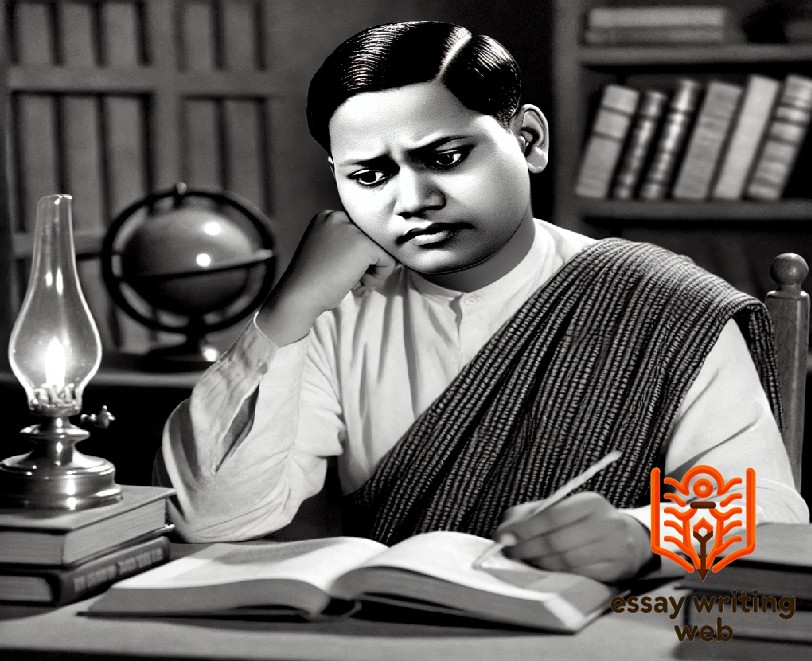
Dr. Bhimrao Ramji Ambedkar, fondly known as Dr. Babasaheb Ambedkar, is celebrated as a towering figure in Indian history, not only for his role as the chief architect of the Indian Constitution but also for his remarkable academic achievements. His educational journey is a testament to his relentless pursuit of knowledge and his determination to rise above the socio-economic challenges imposed by the rigid caste system. Ambedkar’s academic accomplishments, both in India and abroad, laid the foundation for his later work as a social reformer and a leader of national repute.
Ambedkar’s early education in India was marked by both brilliance and adversity. Born into a Dalit family, he faced severe caste-based discrimination, which extended to his school life. He became the first Dalit student to complete high school, a feat that was highly unusual and commendable at the time. His academic potential did not go unnoticed, and he was awarded a scholarship by the Maharaja of Baroda, Sayajirao Gaekwad III, which allowed him to pursue higher education in Bombay (now Mumbai).
At Elphinstone College, which was affiliated with the University of Bombay, Ambedkar continued to excel. Babasaheb earned a Bachelor of Arts degree in Economics and Political Science in 1912. His success at this stage was particularly significant because it challenged the prevailing social norms that sought to limit the educational opportunities available to members of marginalized communities. Ambedkar’s achievements were a source of pride not only for himself but also for the Mahar community, which saw in him a beacon of hope and inspiration.
Ambedkar’s academic ambitions were far from satisfied with his initial success in India. In 1913, he was awarded a Baroda State Scholarship to study at Columbia University in New York. This opportunity marked a significant turning point in his life. At Columbia, Ambedkar was exposed to new ideas and perspectives that would profoundly influence his intellectual and political thought. He pursued a Master’s degree in Economics, which he completed in 1915. His thesis, titled "Ancient Indian Commerce," reflected his deep interest in the economic history of India.
Impressed by his academic prowess, Columbia University awarded Ambedkar a Ph.D. in 1927 for his dissertation titled "The Evolution of Provincial Finance in British India." During his time at Columbia, Ambedkar was deeply influenced by the ideas of liberty, equality, and fraternity—principles that would later be enshrined in the Indian Constitution under his leadership. The intellectual environment at Columbia, free from the caste-based discrimination he had experienced in India, allowed Ambedkar to flourish and solidified his resolve to fight for social justice.
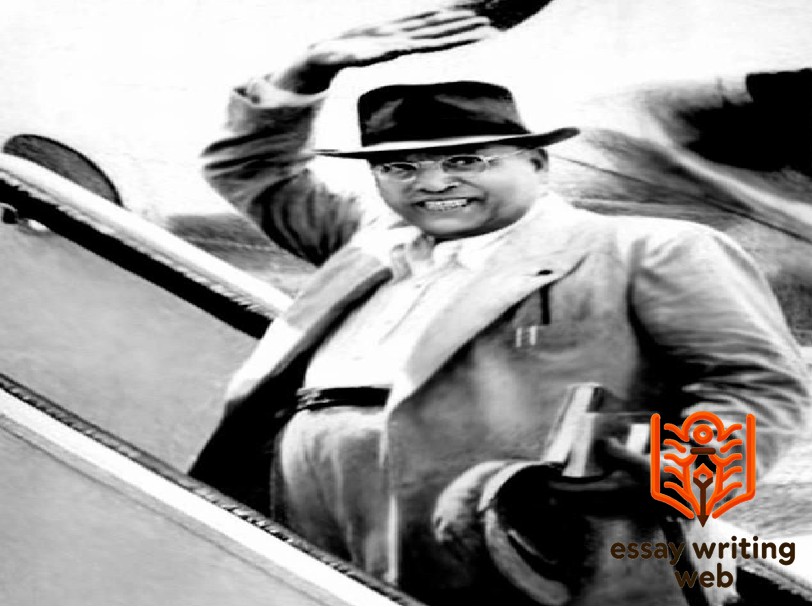
Dr. Bhimrao Ramji Ambedkar, popularly known as Dr. Babasaheb Ambedkar, is a towering figure in Indian history, renowned for his pivotal role in the Dalit movement. Born into a Dalit family in 1891, Ambedkar experienced firsthand the harsh realities of caste-based discrimination, which fueled his lifelong commitment to fighting for the rights of the marginalized. His contributions to the Dalit movement are profound and enduring, making him an iconic leader in the struggle for social justice and equality.
Ambedkar's early life was marked by significant challenges due to the rigid caste system in India. Despite his academic brilliance, he faced severe discrimination in educational institutions and society at large. These experiences shaped his resolve to challenge the oppressive structures that perpetuated the subjugation of Dalits. His education in India and abroad equipped him with the intellectual tools to critique the caste system and advocate for the rights of the oppressed.
One of Ambedkar's most significant contributions to the Dalit movement was his relentless advocacy for social and political rights for Dalits. He believed that the emancipation of Dalits could only be achieved through political empowerment. To this end, he founded the Independent Labour Party in 1936, which later evolved into the All India Scheduled Castes Federation. Through these political platforms, Ambedkar sought to secure better representation for Dalits in legislative bodies and to advocate for policies that would uplift their socio-economic status.
Ambedkar's role as the principal architect of the Indian Constitution is another monumental aspect of his contribution to the Dalit movement. As the chairman of the drafting committee, he ensured that the Constitution enshrined principles of equality, justice, and fraternity. He was instrumental in the inclusion of provisions that prohibited discrimination based on caste and ensured equal rights for all citizens. The abolition of "untouchability" under Article 17 of the Indian Constitution is a direct outcome of Ambedkar's tireless efforts to eradicate caste-based discrimination.
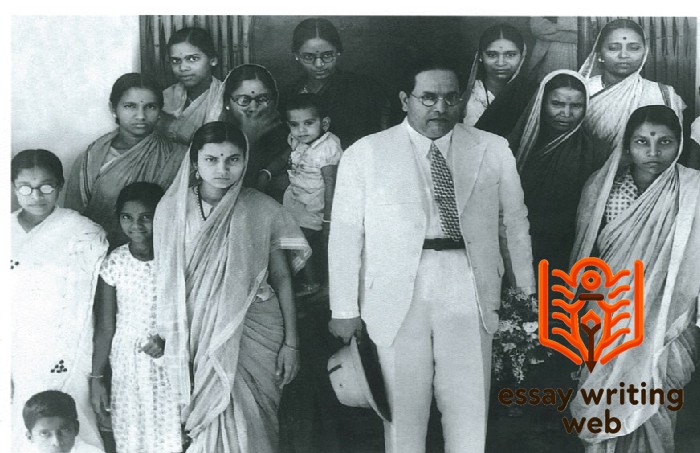
Dr. Bhimrao Ramji Ambedkar, widely revered as Dr. Babasaheb Ambedkar, was not only a social reformer and the principal architect of the Indian Constitution but also a remarkable political leader. His political career was characterized by a relentless pursuit of social justice, particularly for the marginalized and oppressed sections of Indian society, notably the Dalits. Ambedkar's political journey is a story of courage, intellectual brilliance, and an unwavering commitment to the principles of equality and human rights.
Ambedkar's foray into politics was driven by his deep dissatisfaction with the existing political system, which largely ignored the plight of the lower castes. Consequently, Ambedkar's political career began with his involvement in various movements and organizations aimed at securing the rights of the marginalized.
In 1936, Ambedkar founded the Independent Labor Party (ILP), marking his first significant entry into organized politics. The ILP was not just a political party but a platform for advocating the rights of Dalits and laborers. Ambedkar believed that political representation was crucial for addressing the issues of social injustice and economic exploitation faced by these communities. The ILP contested the 1937 elections to the Bombay Legislative Assembly and won 15 of the 17 seats it contested, a testament to Ambedkar's growing influence and the resonance of his message among the masses.
Ambedkar's political ideology was distinct from that of other contemporary leaders. While the Indian National Congress, under the leadership of Mahatma Gandhi, sought to address social issues within the framework of existing social structures, Ambedkar was more radical in his approach. He advocated for a complete dismantling of the caste system and the creation of a society based on principles of liberty, equality, and fraternity. This ideological difference often put him at odds with mainstream political leaders, but it also highlighted his commitment to the cause of the oppressed.
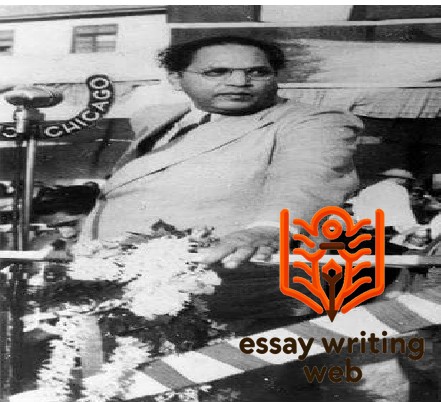
Dr. Babasaheb Ambedkar served first Law Minister of independent India. In this capacity, he played a crucial role in shaping the legal framework of the newly independent nation. His tenure was marked by his efforts to equality through legal reforms and promote social justice.
One of his most significant contributions as Law Minister was the introduction of the Hindu Code Bill. This proposed legislation aimed to modernize and codify Hindu personal law, addressing issues related to marriage, inheritance, and property rights. The bill was intended to ensure gender equality and social justice, particularly for women. However, the bill faced considerable opposition from conservative elements within society and the political sphere, which eventually led to its shelving.
Despite the challenges, Ambedkar's work as Law Minister laid the foundation for future legal reforms in India. His commitment to the principles of equality and justice, which he enshrined in the Indian Constitution, continued to influence Indian law and policy long after his tenure as Law Minister ended.
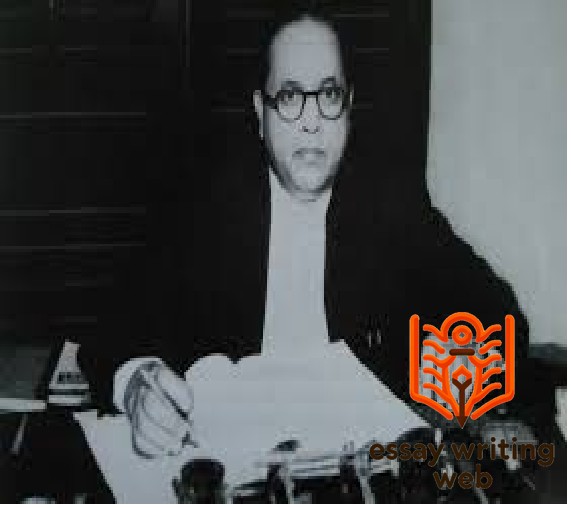
Dr. Babasaheb Ambedkar, a visionary leader and social reformer, made monumental contributions to the fields of education, labor rights, and women's rights in India. His reforms in these areas were driven by his deep commitment to social justice and his belief in the transformative power of education and legal rights. Ambedkar work in these domains laid the foundation for a more equitable and inclusive society, challenging centuries-old structures of discrimination and inequality.
Education was central to Dr. Ambedkar's vision of an empowered and equitable society. Having experienced the profound impact of education on his own life, Ambedkar was acutely aware of its potential to uplift marginalized communities. He believed that education was the most effective tool to break the cycle of poverty and oppression that had kept Dalits and other disadvantaged groups at the bottom of the social hierarchy.
Ambedkar's efforts to reform education began with his advocacy for universal access to education particularly for Dalits. He emphasized the need for government intervention to ensure that every child, regardless of caste or class, had the opportunity to receive a quality education. Ambedkar was instrumental in pushing for the establishment of schools and colleges for Dalits, and he advocated for scholarships and financial aid to support their educational pursuits.
One of Ambedkar's most significant contributions to education was his emphasis on higher education for Dalits. He believed that advanced education was essential for Dalits to compete on an equal footing with other communities and to take on leadership roles in society. To this end, Ambedkar founded educational institutions, such as the Siddharth College of Arts and Sciences in Mumbai, which provided opportunities for Dalits to pursue higher education.
In addition to promoting education for Dalits, Ambedkar also stressed the importance of education for women. He recognized that the empowerment of women through education was crucial for the overall progress of society. His advocacy for women's education was part of his broader efforts to address gender inequality and promote the rights of women in India.
Dr. Ambedkar's commitment to social justice extended to realm of labor rights. He understood that economic exploitation was a key factor in the oppression of marginalized communities, and he worked tirelessly to improve the conditions of workers, particularly those from disadvantaged backgrounds.
As the Minister of Labour in the Viceroy's Executive Council from 1942 to 1946, Ambedkar introduced several landmark reforms aimed at protecting the rights of workers. One of his significant achievements was the introduction of the concept of minimum wages, which sought to ensure that workers received fair compensation for their labor. He also played a key role in the enactment of laws that provided for limited working hours, rest periods, and safe working conditions, thereby improving the quality of life for millions of workers across India.
Ambedkar was also a strong advocate for the rights of industrial workers. He believed that labor unions were essential for protecting workers' rights and ensuring that their voices were heard. To this end, he supported the formation of labor unions and pushed for legislation that safeguarded the rights of workers to organize and collectively bargain with employers.
Another significant contribution of Ambedkar to labor rights was his advocacy for social security measures. He was instrumental in the introduction of the Employees' State Insurance (ESI) Act, which provided medical care and financial support to workers in times of illness, injury, or unemployment. This was a groundbreaking reform that laid the foundation for the modern social security system in India.
Dr. Ambedkar's commitment to gender equality was evident in his efforts to reform women's rights in India. He recognized that women, particularly those from marginalized communities, faced multiple layers of discrimination and that addressing gender inequality was essential for achieving social justice.
One of Ambedkar's most significant contributions to women's rights was his work on the Hindu Code Bill. The bill sought to codify and reform Hindu personal law, addressing issues such as marriage, divorce, inheritance, and property rights. Ambedkar's proposed reforms aimed to ensure greater equality for women, particularly in matters of inheritance and property ownership. Although the bill faced significant opposition and was ultimately not passed during his tenure as Law Minister, it laid the groundwork for future legal reforms that significantly improved the status of women in India.
Ambedkar also advocated for equal rights for women in the workplace. He believed that women should have the same opportunities as men to work and earn a livelihood. His labor reforms, which included provisions for maternity leave and equal pay for equal work, were instrumental in improving the working conditions of women and ensuring that they were treated fairly in the workforce.
In addition to legal reforms, Ambedkar also emphasized the importance of social and cultural change in improving the status of women. He challenged patriarchal norms and practices that subordinated women and called for a more progressive and egalitarian society where women were treated with dignity and respect.
Dr. Bhimrao Ramji Ambedkar, widely known as Dr. Babasaheb Ambedkar, is hailed as the principal architect and founder of the Indian Constitution. As the Chairman of the Drafting Committee of the Constituent Assembly Dr. Ambedkar's role was crucial in shaping the legal and social framework of independent India. His deep understanding of law, his commitment to social justice, and his vision for a united and progressive nation guided the drafting process of the Constitution.
Dr. Ambedkar envisioned a constitution that would ensure justice, liberty, and equality for all citizens, especially the marginalized communities who had long been oppressed. He meticulously crafted provisions that abolished untouchability, protected fundamental rights, and promoted social and economic democracy. His emphasis on constitutional morality and the rule of law laid the foundation for a democratic society where the rights of individuals are safeguarded against any form of discrimination or tyranny.
Under Dr. Ambedkar's leadership, the Indian Constitution emerged as a living document that not only guides governance but also serves as a beacon of hope for a just and equitable.
